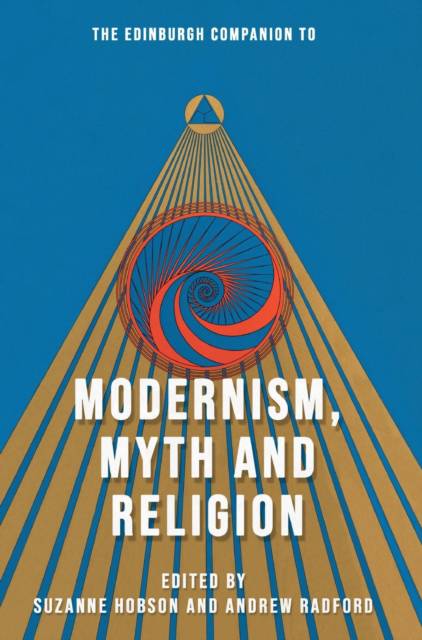
Bedankt voor het vertrouwen het afgelopen jaar! Om jou te bedanken bieden we GRATIS verzending (in België) aan op alles gedurende de hele maand januari.
- Afhalen na 1 uur in een winkel met voorraad
- In januari gratis thuislevering in België
- Ruim aanbod met 7 miljoen producten
Bedankt voor het vertrouwen het afgelopen jaar! Om jou te bedanken bieden we GRATIS verzending (in België) aan op alles gedurende de hele maand januari.
- Afhalen na 1 uur in een winkel met voorraad
- In januari gratis thuislevering in België
- Ruim aanbod met 7 miljoen producten
Zoeken
The Edinburgh Companion to Modernism, Myth and Religion
€ 209,95
+ 419 punten
Omschrijving
Until fairly recently, the 'Authorised Version' of cultural modernism stated that the secularising trends of liberal modernity - and the resultant emphasis on irony, parody and dissolution in modernist artforms - had pushed religion to the edges of early twentieth-century culture. This Companion complicates this understanding by furnishing students and academic researchers with more nuanced and probing assessments of the intersections and tensions between religion, myth and creativity during this half century of geopolitical ferment. It addresses the variety and specificity of modernist spiritualities as well as the intricately textured and shifting standpoints that modernist figures have occupied in relation to theological traditions, practices, creeds and institutions. What emerges is a multi-textured account of modernism's deep-rooted concern with the historical and established forms of religion, as well as new engagements with 'occulture' and indigenous traditions. In short, the Companion supplies a lively and original exploration of the aesthetic, publishing, technological and philosophical trends that shape debates about spirituality, community and self from the 1890s to the 1940s and beyond.
Specificaties
Betrokkenen
- Uitgeverij:
Inhoud
- Aantal bladzijden:
- 552
- Taal:
- Engels
- Reeks:
Eigenschappen
- Productcode (EAN):
- 9781474494786
- Verschijningsdatum:
- 10/01/2023
- Uitvoering:
- Hardcover
- Formaat:
- Genaaid
- Afmetingen:
- 175 mm x 246 mm
- Gewicht:
- 1043 g

Alleen bij Standaard Boekhandel
+ 419 punten op je klantenkaart van Standaard Boekhandel
Beoordelingen
We publiceren alleen reviews die voldoen aan de voorwaarden voor reviews. Bekijk onze voorwaarden voor reviews.








